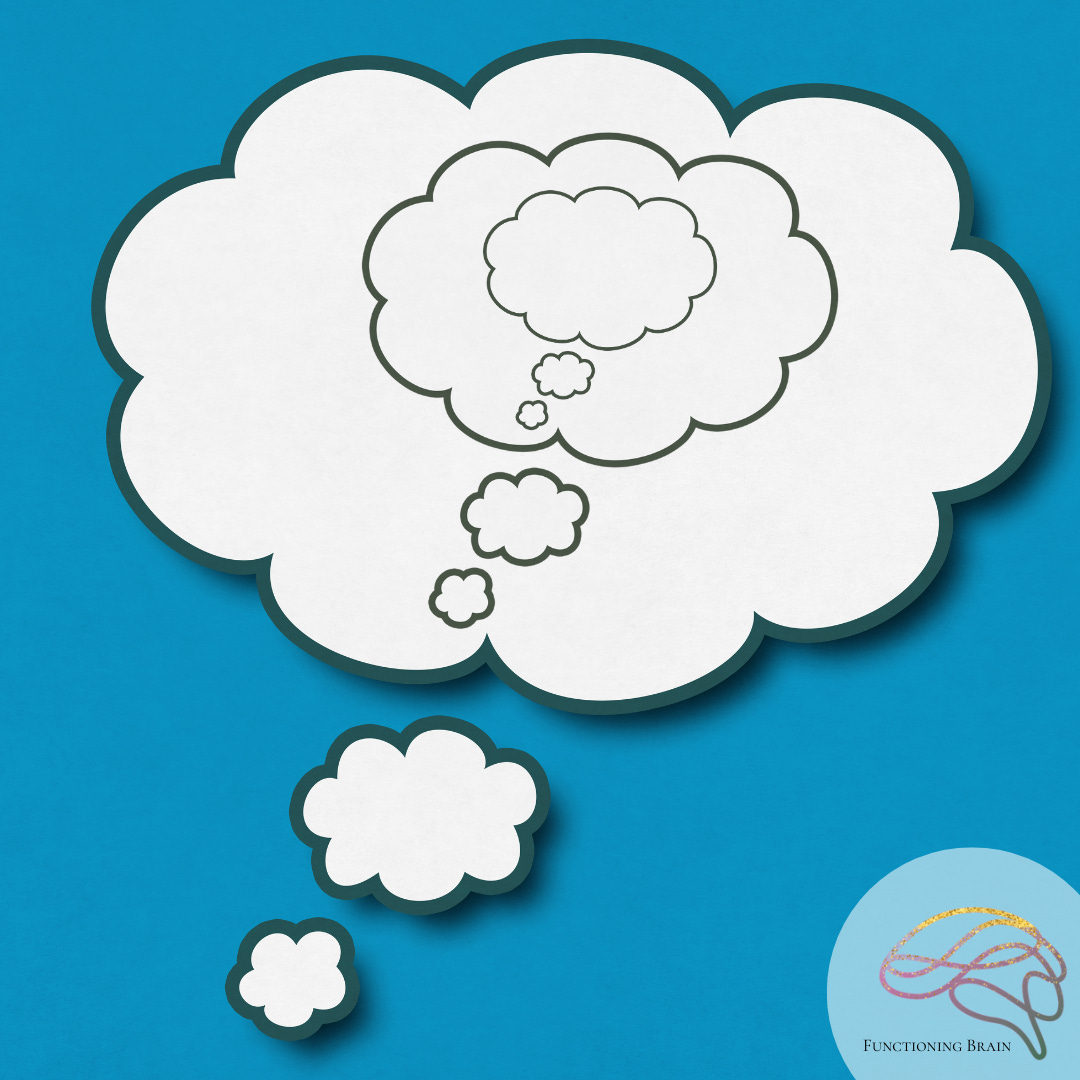If you’ve ever caught your child staring at their math and saying,
“I don’t even know where to start…”
—or maybe you’ve felt that way staring at a full to-do list—
then you’re utilizing metacognition.
That little pause before you answer a complex question.
That moment your child realizes they don’t understand something and asks for help.
That internal voice saying, “Hmm… maybe I should try this a different way.”
That’s metacognition in action.
And it’s a powerful, quietly transformative executive functioning skills we can nurture in our kids (and ourselves).
What Is Metacognition, Really?
The technical definition is awareness and understanding of one’s own thought processes.
But let’s make that simple: it’s that ability to think about what you are thinking.
It’s the mental skill that lets you:
Realize when you’re confused (instead of just feeling frustrated).
Choose a strategy that helps you learn better.
Reflect on how something went and decide what to change next time.
Without metacognition, learning is just information in → information out.
With metacognition, learning becomes flexible, thoughtful, connected and personal.
How Metacognition Develops
Like all executive functioning skills, metacognition doesn’t appear overnight. It’s built day by day—through play, problem-solving, and thousands of small moments.
Early Childhood (Toddlerhood to Preschool)
Monitoring Emerges: Around ages 2½–3, children begin to notice when they don’t know something. They may pause before answering or look to an adult for help.
Simple Strategies: By 3–4, they start repeating information or asking for hints—basic ways of controlling their learning.
Knowing What They Know: They begin to grasp the idea of “I know this” versus “I don’t,” which is the foundation of self-awareness in thinking.
Preschool to Middle Childhood (Ages 3–10)
Planning and Evaluation: Kids start to plan before they act, monitor progress, and evaluate success.
Connecting Knowledge: They begin linking what they already know to what they’re learning now.
Growing Self-Awareness: By middle childhood, many children can identify why something is hard for them and what might help.
This growth doesn’t happen in isolation. It thrives in rich, supportive environments filled with conversation, play, and guided reflection.
How Metacognition Grows in Adolescence
Adolescence brings a new wave of metacognitive potential.
As abstract thinking develops, teens can start to ask deeper questions—not just “What am I doing?” but “Why am I doing it this way?” and “What could I do differently next time?” and “How can I do it my own way?”
Cognitive and Brain Development
Abstract & Hypothetical Thinking: Teens begin to think about possibilities, consequences, and alternative perspectives—core building blocks of metacognitive reflection.
Brain Maturation: The prefrontal cortex (the “thinking about thinking” hub) and related brain regions become more active and interconnected as the brain develops up to the front, improving self-awareness and self-evaluation.
Experience and Learning
Task-Specific Growth: Experience matters. The more exposure teens have to reflection, feedback, and strategy use, the stronger their metacognitive habits become.
Conceptual Change: Adolescents start realizing when their old ideas don’t fit new information—a critical metacognitive moment that drives real understanding.
Social and Environmental Factors
Self-Awareness: Teens grow more introspective and start noticing how their thoughts influence their actions and relationships.
Guidance Matters: Parents and educators can nurture this with open-ended questions and encouragement to pause and reflect.
Discussion and Debate: Healthy argumentation—reasoning through multiple sides of an issue—builds advanced metacognitive awareness.
When Metacognition Clicks
You’ll start to see:
Better Self-Regulation: People who can reflect on their thinking are more equipped to manage emotions and make thoughtful choices.
Strategic Thinking: They begin testing and revising their own strategies to learn or problem-solve more effectively.
Deeper Understanding: They don’t just memorize—they connect, analyze, and apply ideas in new ways.
Why Metacognition Matters
Metacognition is one of those behind-the-scenes skills that impacts every other executive functioning skill’s ability to work better.
It’s what helps kids learn how they learn.
It’s what turns “I don’t get it” into “I don’t understand how we got the answer for B after step 2.”
And it’s what allows growth to keep going long after direct teaching ends.
The beautiful part?
You can actually prime this skill with just a few small changes in how you ask questions, give directions, or frame mistakes.
For now, know that every “Hmm…” moment, every pause before a guess, every “I need help” request—that’s a spark of metacognition forming.
And when we nurture it, we’re not just helping kids think better.
We’re helping them become aware of their own smarts.
Warmly,
Tara Roehl, MS, CCC-SLP💛
P.S. Paid subscribers—tomorrow’s post is full of small, easy, brain-based ways to boost metacognition in daily life—how to word responses, ask questions, and scaffold thinking so kids can truly “think about their thinking.” See you there!



